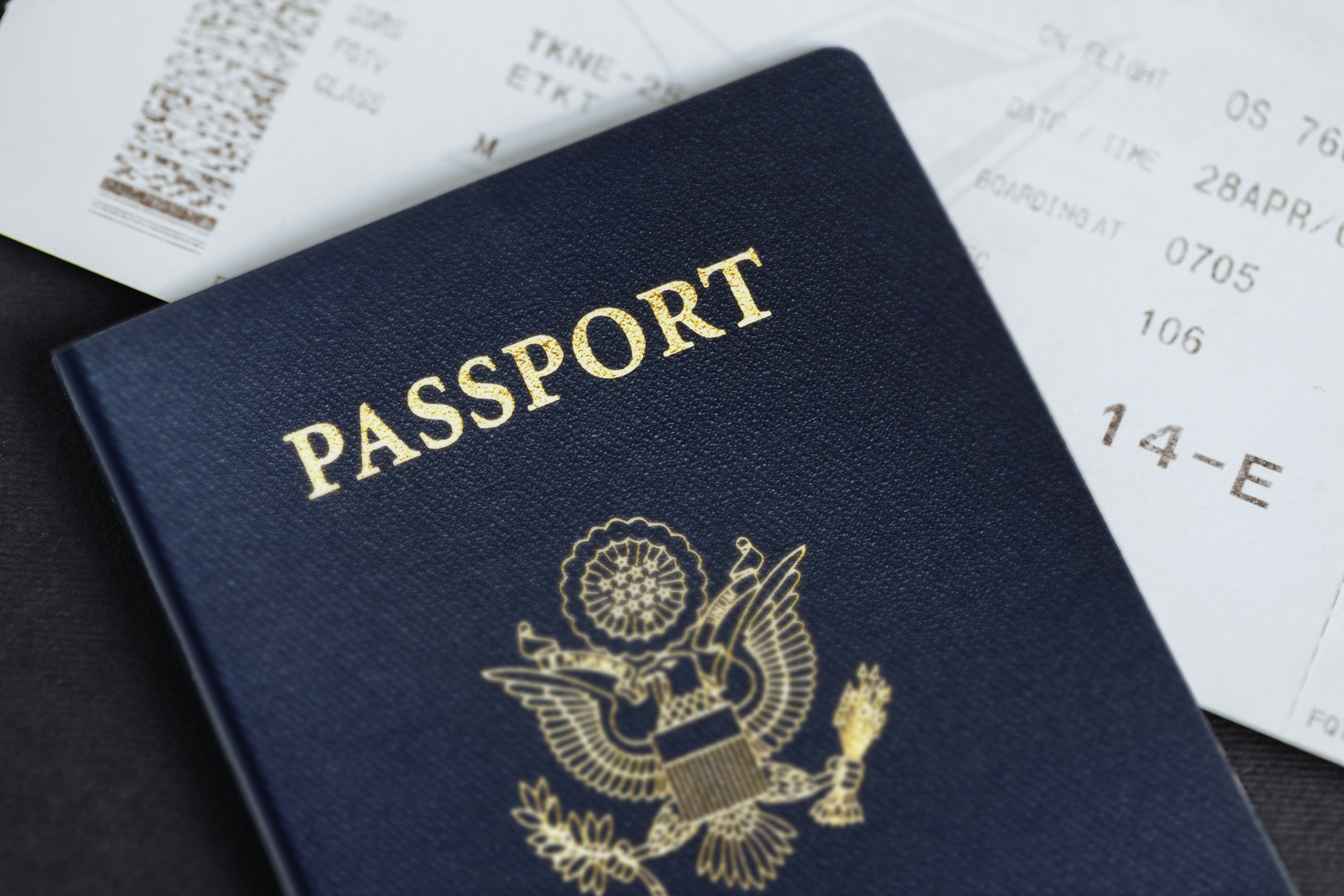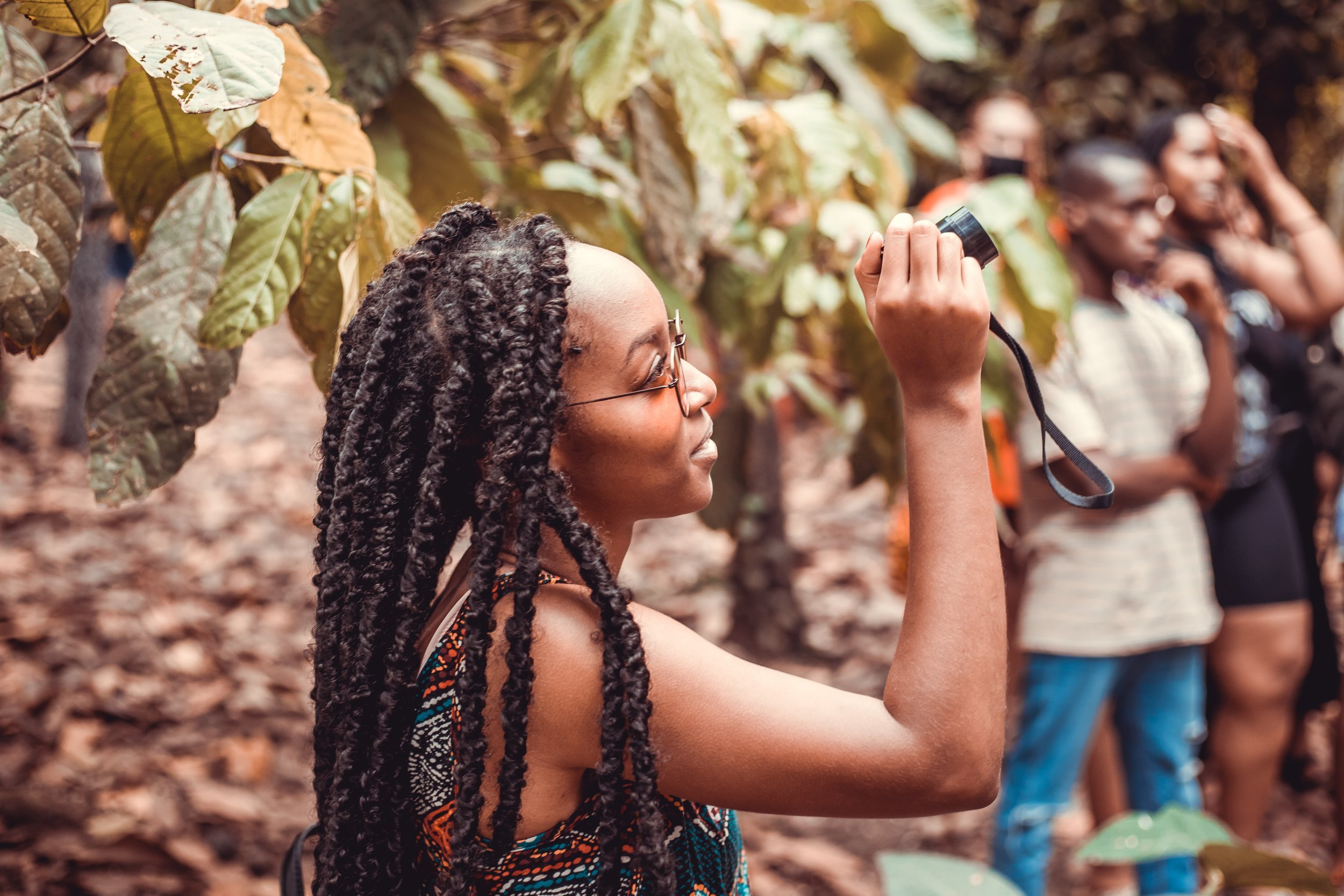What To Pack For Ghana: Essentials + Local Tips
By: Briona Lamback
Are you planning a trip to Ghana and wondering what to pack? We have you covered. Ghana is beautiful, with tropical, generally hot, humid weather year-round. The rainy season in the northern part of Ghana typically lasts from April until October. The southern part of the country (including the capital city, Accra) has its rainy season between April and June and light rainfall in September and October.
Visiting Ghana during its peak season, December, means experiencing the Harmattan season. Locals refer to Harmattan as the dry period, which is extra dusty and tends to fog up. Harmattan can last through February. Weather aside, the Atlantic Ocean borders the Western country. It has a vibrant capital city with buzzing bars and restaurants and a lively nightlife.
This guide is your essential Ghana packing list, covering everything from the important documents you can’t leave home without to what clothes to pack in your luggage.
This post contains affiliate links. If you click and make a purchase, we’ll receive a commission at no extra cost to you.
The Essential Ghana Packing List
Documents
Ghana Tourist Visa
Many countries (including the U.S., UK, and Canada) require tourist visas to enter Ghana. You can apply for your visa at your local embassy or consulate as early as 3 months before visiting Ghana. Here are the visa requirements for Ghana you need to know.
Yellow Fever certificate
A Yellow Fever certificate is a requirement for entry into Ghana, which immigration officers will check at the airport. Before departing home, schedule a vaccination appointment at your local travel clinic. You must be vaccinated for Yellow Fever at least 10 days before entering Ghana.
Travel Insurance
Although this isn’t something you physically pack, we don’t recommend traveling anywhere without travel insurance, including Ghana. Protect yourself, time, and money with one of our preferred travel insurance providers, Faye.
Passport
Like many countries, Ghana requires your passport to be valid for at least six months beyond your intended stay. Your passport must also have at least one blank page remaining. It’s crucial to double-check your passport meets these standards before traveling, as some airlines won’t let you board if your passport doesn’t meet these requirements.
Debit/Credit Cards
Many businesses, especially hotels, restaurants, bars, grocery stores, and clubs, will accept major debit and credit cards from Visa and Mastercard. Traveling to Ghana with at least two debit or credit cards is ideal if your home bank blocks your card or is lost or stolen. Few businesses accept Apple Pay or other digital payment solutions, so you’ll want to carry your physical card.
Cash
While you can use a debit or credit card at most businesses, especially in Accra and other major cities, cash is still widely accepted and appreciated in Ghana. Almost all businesses accept cash, which is most helpful for purchasing food or items from street vendors and local markets. Many drivers in Ghana prefer cash when using rideshare apps like Uber.
Health and Beauty
Hand sanitizer or wet wipes
Packing hand sanitizer or wet wipes is a must when visiting Ghana. Most public restrooms will have hand soap, but some may not or be out, so we recommend packing your own.
Travel-size toilet paper
Outside of hotels and restaurants, it’s common for public restrooms in Ghana not to have toilet paper. For your comfort, we recommend packing a travel-size pack of toilet paper to carry in your bag.
Insect repellent
Preventing mosquito and insect bites is essential during your sightseeing and nighttime experiences in Ghana. We recommend packing insect repellent and using it daily during your trip.
Sunscreen
Sunscreen is always a must, especially in Ghana, where you’ll often be exposed to the sun during your visit. Protect yourself with this sunscreen, our favorite Black-owned brand to recommend for Black travelers.
Malaria prevention medicine
Before traveling to Ghana, we recommend visiting a travel clinic and getting a prescription for medicine that prevents malaria. If infected, malaria can be deadly, so it’s crucial to prepare with preventative medication.
Diarrhea medicine
Travelers’ diarrhea is likely if you’re visiting Ghana due to the differences in local water, food preparation, and local ingredients that may be new to you. Ask your doctor for recommendations for the best diarrhea prevention and treatment medicine.
Oral rehydration salts or Liquid I.V.
Whether your stomach is getting used to new-to-you foods in Ghana or dehydrated after a long night of enjoyment, you’ll want to pack oral rehydration salts or a powder, like Liquid I.V., to replenish your hydration levels.
Technology
Universal adapter
Bringing a universal adapter is essential for visiting Ghana. While some hotel rooms feature universal outlets, you don’t want to get caught slipping without one. In Ghana, type G power plugs and outlets are most common. Type G plugs are the same three-prong plugs used in the UK. Ghana’s standard voltage is 230 V at a frequency of 50 Hz.
Portable charger
Much like traveling anywhere, sometimes you’ll be outside your hotel or Airbnb with nowhere to charge your phone. Plan to pack a portable charger for Ghana.
Portable fan
Ghana’s weather is often hot. Many open-air spaces, such as restaurants and bars, do not have air conditioning. Unless you book a “comfort” Uber or Bolt ride, most drivers will not have AC in their cars. For these reasons, we highly recommend packing a portable fan for your trip to Ghana.
E-sim card
Before traveling to Ghana, it’s essential to contact your phone provider to find out about international data usage and costs. If you have an unlocked smartphone, you can purchase an e-sim for data using companies like Black-owned Ajo ( Use 'Buoyant' for 5% off) or Airalo.
Camera
Ghana is a stunning country, and you’ll want to remember it with photos or videos, so don’t forget your camera at home. If you want a professional photo shoot, book this private experience with a local photographer.
Clothing and Accessories
Sunglasses and Hat
Sunglasses are also essential Ghana travel items. We recommend packing at least two pairs of UV-protected sunglasses, including a backup pair in case yours gets misplaced. Pack a hat or visor for extra sun protection on especially hot days.
Sandals
By now, you know that Ghana gets hot, so plan to pack sandals for some breathable comfort during your trip. When it comes to nighttime footwear, consider packing chunky or platform heels rather than skinny, stiletto-style heels, as many roads and walkways in Ghana are unpaved.
Close-toed shoes
If you plan on visiting Ghana’s cultural hotspots like Cape Coast or booking an adventurous local experience like ATVing, a pair of comfortable close-toed shoes you don’t mind getting a bit dusty is a must-pack item.
Swimwear
Whether it's a hotel pool, beach, lake, or waterfall, you’ll likely dip in some body of water in Ghana—we don’t recommend leaving without doing so! Pack a few swimwear pieces and, possibly, swim shoes in your suitcase.
Clothing
Due to Ghana's hot weather, we recommend packing 2 to 3 outfits daily. You'll likely want to change outfits and showering between daytime and nighttime activities. Light, breathable fabrics like linen are perfect for Ghana, especially dresses, shorts, t-shirts, jumpsuits, and flowy clothing.
Generally, Ghana is a welcoming, laid-back society where you can dress as you'd like without strict rules. Use your discernment depending on the sites you'll be visiting. When visiting religious or ancestrally significant places, it's best to dress modestly. The only rule is not to pack camouflage-print clothing, which is generally unacceptable in Ghana, especially for me.









